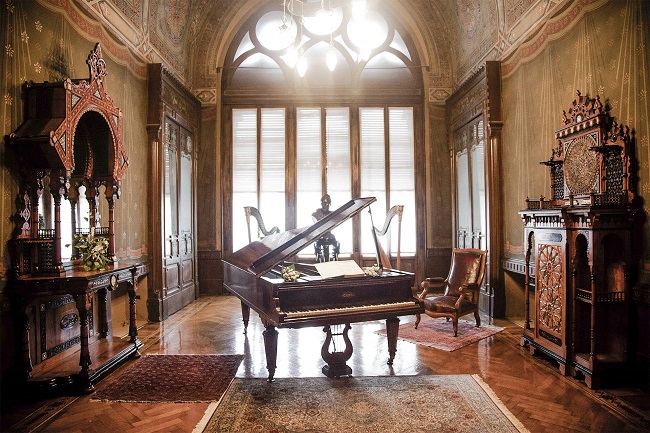
Verdi's House of Musicians' Rest is a paradise for former artists
 |
Milan - Verdi referred to it as "the most beautiful work" of his life. Nearly 120 years later, his Casa di Riposo for musicians in Milan still provides shelter for sixty seniors who have dedicated their lives to music. This is reported by the AFP agency.
The piano echoes through the hallways as a singer performs famous arias in the main hall surrounded by dozens of retirees. In the elegant Casa Verdi, music permeates every floor.
"This is a paradise. Music is everything to me and I never expected to find such an amazing place," declares seventy-nine-year-old Marisa Terzi, who arrived here four months ago.
"It's nothing like a retirement home. We're here on vacation! Time flies. In the morning, someone plays the piano and everyone, even those in wheelchairs, comes to listen. We all sing, it's very nice, and then there are concerts every afternoon," she says.
Marisa came to Casa Verdi after a long career as a singer and composer, having no family left. "I am happy because I feel at home here," she emphasizes.
Ninety-four-year-old Bissy Romana shares her sentiment. "For a moment, I felt like I was all alone in the world, I had no one left and Casa Verdi seemed like the last solution: to die with music in my heart and among friends from the world of music," states this musicologist of Romanian origin, who has lived in Russia, the United States, and France.
A rather elderly Giuseppe Verdi decided at the end of the 19th century to establish this retirement home where there was still countryside at the time, and where Milan now sprawls. He wanted to provide musicians a dignified end to their lives. The neoclassical building was designed by architect Camillo Boito, brother of Verdi's brilliant librettist and composer Arrigo Boito.
However, Casa Verdi was only opened in 1902, after Verdi's death, as he could not bear the thought of anyone thanking him for his philanthropic work during his lifetime.
After 117 years, the home operates just as it did on the first day, without debts and without government support. This is, according to its president Roberto Ruozzi, "a true miracle."
Residents contribute a monthly amount calculated based on their income, which represents roughly just one-fifth of the actual costs of their stay. This is because "Verdi bequeathed to the home all his copyright royalties, which amounted to considerable sums. Some of these were partially invested in the 120 apartments that are rented out," says Ruozzi.
Casa Verdi has also received donations, particularly six million euros (150 million CZK) from the daughter of the famous conductor Arturo Toscanini, from which considerable income is also derived due to prudent investing.
"We live here, we have medical care. They take care of us wonderfully and everything is here," says seventy-one-year-old pianist Raimondo Campisi, who arrived four years ago. He previously lived for 20 years on a boat in Beaulieu-sur-Mer in the south of France and traveled around the world.
The institution also shelters a dozen students from the conservatory or the academy of the famous Milan opera La Scala. This initiative began in 1999 to allow different generations to exchange views.
Like other students from Italy, Japan, or South Korea, thirty-year-old soprano Marika Spadafin values this exchange. "I talk to the retirees, they listen to me and give me advice. It's important for me because I come from a non-musical family," says the young artist.
When asked about potential tension in the house, as artists are known for their eccentric characters, the elegant pianist replies: "Put together 60 artists and... well, you can imagine!"
The waiting list for Casa Verdi includes a dozen artists waiting for someone from the older musicians to pass away. "We know we will die here, but I hope to stay a little longer," says seventy-nine-year-old Marisa.
The English translation is powered by AI tool. Switch to Czech to view the original text source.
0 comments
add comment







